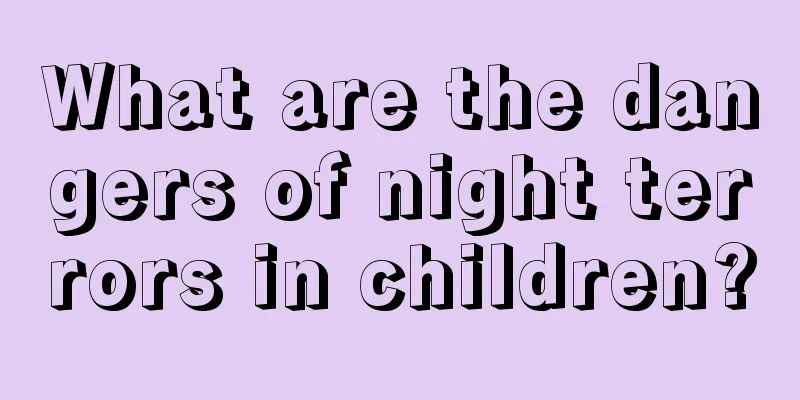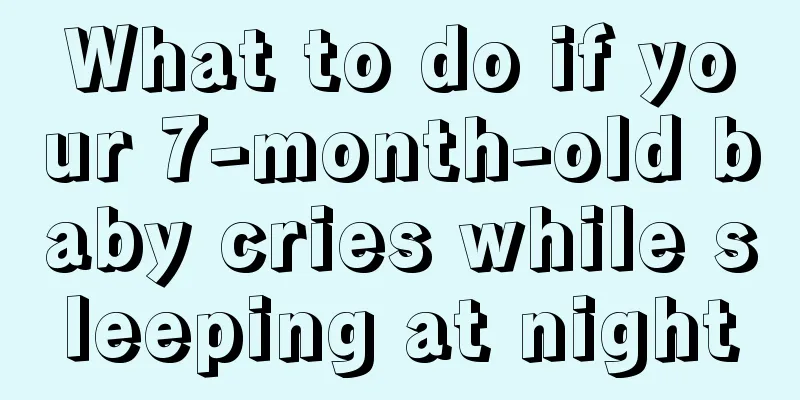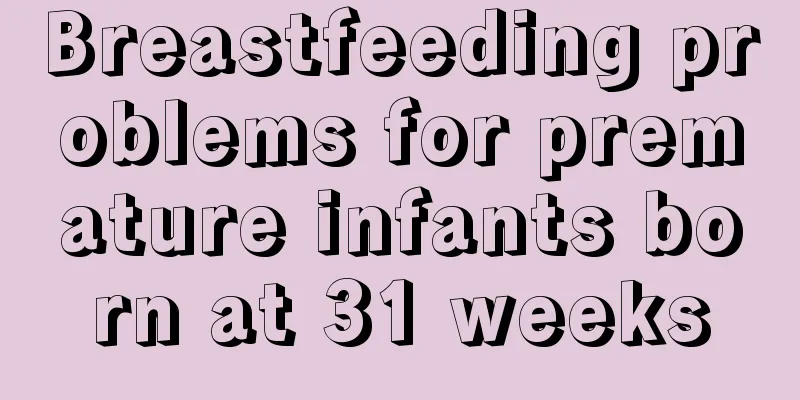What should I do if my child has diarrhea?

|
Every mother is concerned about her baby's health and wishes that the baby is under her eyes all the time, so that the mother can know in time whether the baby is well or not and whether he or she will get sick. Once the baby is sick, the mothers will feel very anxious and hope that it is themselves who are sick and not let the baby suffer. Sometimes the baby will have diarrhea, so what should I do if the child has diarrhea? Reasons for diarrhea in three-month-old babies 1. Physiological loose stools: Sometimes, thin stools in babies do not mean diarrhea. Breastfed babies may defecate up to 7 to 8 times, or even 10 times a day. Their stools are thinner and golden yellow. If the baby is in good spirits and gaining weight normally, parents don't need to worry or go to the hospital. If a bottle-fed baby has loose stools and the frequency increases per day, please take the baby to the hospital for medical treatment immediately. If parents cannot determine whether loose stools are physiological, they should go to the hospital for a doctor's diagnosis. 2. Improper feeding: Sometimes parents feed their babies with too concentrated milk powder, or the milk powder is unsuitable, or the milk is too cold. Sometimes, they wean their babies when the weather is hot, etc., which can easily cause diarrhea in babies. Symptoms of diarrhea caused by improper feeding are foamy stools with a sour taste, sometimes mixed with indigestion particles and mucus. Parents should correct improper feeding methods, and if symptoms do not improve, they should go to the hospital for treatment. 3. Milk powder allergy: Babies who are allergic to milk powder protein will also suffer from diarrhea. Non-infectious diarrhea after drinking milk or formula for more than 2 weeks, with stool mixed with mucus and blood, accompanied by skin symptoms such as eczema and urticaria. At this time, the mother should give the baby anti-allergic milk powder according to the doctor's prescription. What should I do if my three-month-old baby has diarrhea? 1. General treatment: If the baby is under 6 months old and is breastfed, breastfeeding needs to continue; if the baby is not breastfed, the baby can continue to be fed with milk or dairy products that the baby consumes daily. Babies with mild symptoms can appropriately reduce the amount of milk they drink. But if the baby has severe diarrhea, he or she should fast for 8 to 24 hours and receive intravenous fluids. 2. Protect delicate skin: Diapers must be changed frequently, and the buttocks must be cleaned with clean water and dried. 3. Add or remove clothes appropriately: The clothes of infants and young children should be added or reduced as the temperature rises or falls to avoid overheating, and the abdomen should be prevented from getting cold when sleeping at night. In summer, you should feed more water and avoid overeating or eating foods high in fat. |
<<: Pros and cons of rectal medication in children
>>: Baby's feet are slightly turned outward
Recommend
What should I do if my child has a cold, fever and runny nose?
In people's daily lives, diseases are caused ...
What to do if the newborn baby has not defecated for four days
When taking care of your baby, you always need to...
Is it okay to hold a newborn baby often?
For newborn babies, they like to stay in the arms...
What to do if your 2-month-old baby doesn't like to laugh
Everyone knows that children are the most innocen...
Why does my baby always wake up when sleeping at night?
Babies often cry and make a fuss at night. If the...
What to do if there is hard earwax in the baby's ear
Many people have earwax in their ears, and childr...
How to supplement vitamin D for children?
Vitamin D is an essential nutrient for the develo...
Calcium deficiency in children causes sunken forehead
Calcium deficiency is quite common in children, w...
Symptoms of hip dislocation in children
We all know that children are particularly prone ...
How can students lose weight fastest?
Excessive intake of food will cause obesity, and ...
What are the dangers of a one-year-old baby snoring?
It is very common for adults to snore, but childr...
What to do if your child doesn't sleep on his own
There are many reasons why children don’t like to...
What to do if the baby does not defecate for several days
For newborns, the digestive system determines whe...
How to use alcohol to cool a child's fever
Children's physical health is an issue that m...
What to do if the baby falls to the ground
Many parents are first-time parents and do not ha...









